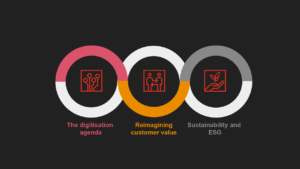Predictive Care: The Future of Health Insurance in 2025 is set to revolutionize the landscape of healthcare, providing a proactive approach that emphasizes prevention and personalized treatment plans. As technology advances, the ability to foresee health issues before they arise becomes increasingly viable, transforming how insurance companies operate and how individuals engage with their health. This shift not only enhances patient outcomes but also streamlines the cost structure of healthcare, making it more efficient for both providers and consumers.
In this new era, predictive analytics and data-driven insights will play a pivotal role in tailoring insurance policies to individual needs, ensuring that coverage is relevant and comprehensive. By focusing on prevention rather than just treatment, predictive care holds the promise of significantly impacting health maintenance and reducing the burden of chronic diseases in the future.
In today’s fast-paced world, the importance of time management cannot be overstated. With the constant barrage of responsibilities, from work commitments to personal obligations, finding a balance can often feel overwhelming. However, mastering the art of time management is crucial for achieving both professional success and personal satisfaction. This article aims to delve into effective strategies for managing time wisely, thereby enhancing productivity and ensuring a healthier work-life balance.First and foremost, it’s essential to recognize that time management is not just about squeezing more tasks into a day; it’s about prioritizing what truly matters.
One effective method for prioritization is the Eisenhower Matrix, a tool popularized by former U.S. President Dwight D. Eisenhower. This matrix divides tasks into four categories: urgent and important, important but not urgent, urgent but not important, and neither urgent nor important. By categorizing tasks in this way, individuals can focus on what requires immediate attention and what can be scheduled for later, reducing the feeling of being overwhelmed.Another vital component of effective time management is setting clear, achievable goals.
The SMART criteria—Specific, Measurable, Achievable, Relevant, and Time-bound—can provide a framework for goal setting. For instance, instead of saying, “I want to get fit,” a SMART goal would be, “I will exercise for 30 minutes, five times a week for the next three months.” This clarity not only increases motivation but also allows for tracking progress, which is essential for maintaining momentum.In addition to prioritizing tasks and setting goals, creating a structured schedule can significantly enhance time management.
Whether through digital calendars or traditional planners, visually mapping out one’s day can provide a clear overview of commitments and deadlines. It is recommended to allocate specific time blocks for different activities and to include buffer times for unexpected interruptions. This flexibility can reduce stress and keep one on track throughout the day.Moreover, it’s crucial to recognize and mitigate distractions that can derail productivity.
In our increasingly digital world, distractions often come in the form of notifications from smartphones and social media. One effective strategy is to designate specific times for checking emails and messages rather than allowing them to disrupt focused work time. Additionally, creating a dedicated workspace can help signal to the brain that it’s time to concentrate, further minimizing distractions.Another powerful tool in time management is the Pomodoro Technique, which encourages individuals to work in focused bursts followed by short breaks.
For example, one might work for 25 minutes and then take a five-minute break. This method not only maintains high levels of concentration but also prevents burnout by providing regular intervals for rest. After completing four Pomodoros, a longer break can be taken, allowing the mind to refresh before tackling more tasks.Furthermore, delegation is an often-overlooked aspect of time management.

Many individuals feel the need to handle every task themselves, leading to unnecessary stress and a lack of productivity. Learning to delegate effectively can free up valuable time. This could involve assigning tasks to coworkers, outsourcing certain responsibilities, or even involving family members in household tasks. It’s essential to recognize that collaboration can lead to more efficient outcomes and often improves team morale.As we continue to explore the intricacies of time management, it’s also important to cultivate a mindset that embraces flexibility.
Life is inherently unpredictable, and even the most meticulously planned schedules can be disrupted. Adopting a flexible approach means being willing to adjust plans and expectations as needed. This adaptability reduces frustration and allows for continued progress, even when faced with challenges.Another critical aspect is self-care, which plays a significant role in effective time management. When individuals take care of their physical and mental health, they are better equipped to manage their time effectively.
Regular exercise, a balanced diet, and sufficient sleep are essential for maintaining energy levels and cognitive function. Additionally, taking time for hobbies and relaxation can recharge the mind, making it easier to focus on tasks.Lastly, reflecting on one’s time management practices is vital for continuous improvement. Setting aside time to review what worked well and what didn’t can provide valuable insights.
This reflection could involve journaling about daily accomplishments or conducting weekly reviews to adjust strategies as necessary. By regularly assessing one’s time management techniques, individuals can identify patterns and make informed adjustments that enhance productivity.In conclusion, mastering time management is a multifaceted endeavor that requires a blend of prioritization, goal setting, scheduling, distraction management, and self-care. By implementing these strategies and remaining adaptable, individuals can navigate their responsibilities with more ease and confidence.
Ultimately, effective time management leads not only to increased productivity but also to a more fulfilling and balanced life. Embrace these strategies, reflect on your progress, and watch as you transform your approach to managing time.




